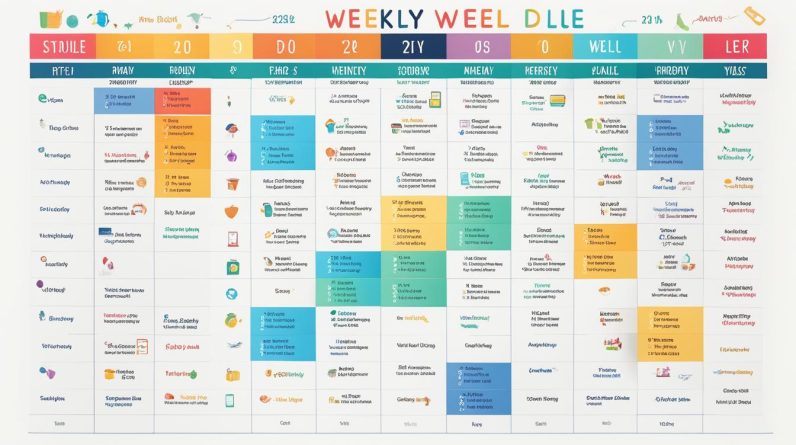Introduction
Are you considering homeschooling your child in South Carolina? Whether you’re new to the state or just getting started, this guide will provide you with valuable information and tips to help you navigate the homeschooling journey. South Carolina offers three legal options for homeschooling, allowing you to choose the one that best suits your family’s needs. From registering with an accountability option to finding the right curriculum and joining support groups, we’ve got you covered every step of the way. Let’s dive in!
Key Takeaways:
- South Carolina offers three legal options for homeschooling.
- Most homeschoolers choose an accountability association under Option 2 or Option 3.
- Registering with an accountability option is important to ensure compliance with homeschooling laws.
- Keeping organized and maintaining necessary documents is crucial for homeschooling in South Carolina.
- Choosing the right curriculum is essential and can be personalized to your child’s learning style and interests.
Registering with an Accountability Option
In South Carolina, homeschoolers have three options for accountability – Option 1, Option 2, and Option 3. Most homeschoolers choose to join an accountability association under Option 2 or Option 3. It is essential to find an association that offers the services you need.
You do not need to notify the local school if you have never been enrolled in a South Carolina public school. Find support groups and local meet-ups to connect with other homeschooling families in your area.
Choosing the Right Accountability Association
When selecting an accountability association, consider factors such as the support and resources they provide, their track record, and their fees. Look for associations that align with your homeschooling philosophy and offer guidance on meeting legal requirements.
Connecting with Support Groups
Joining a homeschooling network can provide valuable support and a sense of community. Look for local support groups and homeschool meet-ups in your area. These groups can offer guidance, encouragement, and a chance to connect with other homeschooling families.
“Homeschooling networks create a supportive environment where families can share ideas, resources, and experiences, helping each other navigate the homeschooling journey.”
Benefits of Joining Support Groups
- Opportunities for socialization and friendship for both parents and children
- Access to shared resources and curriculum recommendations
- Cooperative learning opportunities and group activities
- Field trips and specialized classes
Online Support Groups
In addition to local support groups, consider joining online homeschooling communities. These virtual networks provide a platform for connecting with homeschoolers across the state, sharing advice, and accessing a wealth of resources.
Organizing Documents
Once you have chosen an accountability option for homeschooling in South Carolina, it is important to keep your documents organized and readily accessible. This will help ensure compliance with homeschool laws and provide a clear record of your child’s educational journey. Here are some essential documents to keep in order:
- Your Membership Letter: Upon joining an accountability association, you will receive a membership letter. This letter serves as proof of your homeschooling status and should be filed in a safe place. It may also include important information about your association and its resources.
- Wallet Card: Some accountability associations issue wallet cards for homeschooling parents. These cards not only provide identification as a homeschool teacher but can also grant discounts at various educational retailers.
- Transcript Assistance Documents: Some associations offer transcript assistance services, helping homeschoolers prepare official transcripts for college applications. If your association provides this support, be sure to keep any relevant documents related to transcript assistance.
- DMV Letters: In South Carolina, homeschoolers may need letters from their accountability association to exempt their children from compulsory attendance requirements for obtaining driver’s permits or licenses. If applicable, keep these letters handy for any DMV-related needs.
- Dual Enrollment Letters: If you plan on enrolling your homeschooled child in dual enrollment programs, your association may provide letters confirming their homeschooling status. These letters are essential for demonstrating eligibility for dual enrollment opportunities.
By organizing and maintaining these important documents, you’ll have a comprehensive record of your homeschooling journey, making it easier to comply with South Carolina homeschool laws and access resources provided by your accountability association.

Essential Documents for Homeschool Organization
| Document | Description |
|---|---|
| Membership Letter | A letter from your accountability association confirming your homeschooling status and providing important information about the association. |
| Wallet Card | A card that serves as identification for homeschooling parents and may provide discounts at educational retailers. |
| Transcript Assistance Documents | Any documents provided by your association to assist in creating official transcripts for college applications. |
| DMV Letters | Letters from your association that exempt your homeschooled child from compulsory attendance requirements for obtaining driver’s permits or licenses. |
| Dual Enrollment Letters | Letters confirming your child’s homeschooling status for eligibility in dual enrollment programs. |
Finding the Right Curriculum
Finding the right curriculum is a crucial step in homeschooling your child in South Carolina. Remember, homeschooling offers a personalized approach to education, allowing you to tailor the curriculum to your child’s needs and learning style.
Start by identifying your homeschooling style and preferences. Are you more inclined towards a structured or flexible approach? Do you prefer hands-on activities or online resources? Understanding your preferences will help narrow down your options and find a curriculum that aligns with your goals.
It’s worth exploring free curriculum options available online. Many websites offer high-quality educational resources at no cost. This allows you to try out different materials and subjects before committing to a specific curriculum.
In South Carolina, homeschooling laws require covering the five basic subjects – reading/writing, science, social studies, and math. These subjects form the foundation of your child’s education. However, homeschooling also provides the flexibility to incorporate additional subjects according to your child’s interests and passions.
Diversifying the Curriculum
While the core subjects are essential, don’t forget to add variety to your child’s homeschooling experience. Including subjects such as music, art, physical education, and world languages can provide a well-rounded education.
“A well-rounded education bridges the gap between academics and real-life experiences, helping students develop a broader perspective and explore their passions.” – Homeschooling Parent
Consider incorporating field trips, experiential learning activities, and community resources to enhance your child’s education beyond traditional textbooks and classroom settings. Engage with local museums, historical sites, libraries, and community organizations to provide practical and immersive learning opportunities.
Remember that finding the right curriculum is an ongoing process. As your child grows and develops, their educational needs may change. Stay open to exploring new materials, adapting your approach, and seeking guidance from other experienced homeschooling parents.
Keeping Records
Keeping accurate records is an essential aspect of homeschooling in South Carolina. It helps you stay organized and ensures compliance with homeschool laws in the state. Here are some key elements to consider when maintaining your homeschooling records:
- Track 180 days of learning: As per homeschool laws in South Carolina, you are required to provide at least 180 days of instruction each year. Keep a record of the dates and subjects covered to demonstrate your adherence to this requirement.
- Maintain lesson plans: Documenting your lesson plans helps you stay on track and effectively manage your homeschooling journey. Outline the topics, activities, and resources you plan to cover for each subject, enabling you to track progress and ensure a well-rounded education.
- Create a portfolio: Build a portfolio of your child’s work to showcase their progress and achievements. Include samples of completed assignments, projects, artwork, and any other relevant materials. This portfolio serves as a valuable record of your child’s academic growth.
Regularly set goals and evaluate your child’s progress to maintain accountability and make necessary adjustments to your homeschooling approach. By keeping meticulous records, you not only meet legal requirements but also gain valuable insights into your child’s development.
Remember, record-keeping is a beneficial practice that helps you monitor progress and showcase your child’s accomplishments. It serves as a valuable resource for evaluation and self-reflection, ensuring a fulfilling homeschooling experience.

Joining Support Groups
Embarking on your homeschooling journey can be both exciting and challenging. As you navigate this new path, finding support and connecting with other homeschooling families becomes invaluable. Joining homeschool support groups allows you to access a community of like-minded individuals who understand the unique challenges and triumphs of homeschooling.
Homeschool support groups provide a space for you to connect with other families, share experiences, and gain valuable insights. These groups not only offer emotional support but also practical resources and advice. By engaging with other homeschoolers, you can exchange ideas, seek guidance, and form lasting friendships.
Whether virtual or local, support groups provide various benefits:
- Shared experiences: Connect with families who are going through similar homeschooling journeys. Share your successes, challenges, and strategies to overcome obstacles together.
- Socialization opportunities: Support groups often organize social events, allowing your children to interact with peers in an educational setting. These events may include co-op classes, field trips, group projects, and extracurricular activities.
- Collaborative learning: Homeschool support groups offer opportunities for collaborative learning. You can participate in group projects, share resources, and take advantage of specialized knowledge within the community.
- Access to resources: Support groups often provide access to a wealth of resources such as recommended curricula, educational materials, and local learning opportunities. Tap into these resources to enhance your homeschooling experience.
Consider joining both local and online support groups to broaden your network and connect with homeschoolers beyond your immediate community. Online support groups allow you to connect with homeschooling families from different geographical locations, offering diverse perspectives and a broader range of resources.
“Homeschool support groups provide a strong sense of community, a place where you can find advice, support, and lasting friendships.”
Remember, engaging with a support group is all about finding the right fit for you and your family. Take the time to explore different groups, attend meetings or events, and connect with other homeschoolers to ensure you find a community that aligns with your values and goals.
Joining a homeschool support group can enhance your homeschooling journey by providing a sense of community, opportunities for socialization, collaborative learning, and access to valuable resources. Connect, learn, and grow with fellow homeschoolers as you navigate this rewarding educational path.
Recommended Homeschool Support Groups:
| Support Group Name | Location | Website |
|---|---|---|
| South Carolina Homeschool Association | Statewide | https://schomeschooling.org |
| Greenville Homeschool Group | Greenville | https://greenvillehomeschoolgroup.com |
| Charleston Homeschool Network | Charleston | https://charlestonhomeschoolnetwork.org |
| Virtual Homeschool Community | Online | https://virtualhomeschoolcommunity.org |
Homeschooling Laws and Options
When it comes to homeschooling in South Carolina, understanding the laws and options is essential. The state provides three legal options for homeschooling – Option 1, Option 2, and Option 3. Each option comes with its own set of requirements, including enrollment, recordkeeping, and testing.
Many families opt for Option 3 as it offers the most flexibility in choosing curricula and resources.
To ensure compliance with homeschooling regulations in South Carolina, it’s crucial to familiarize yourself with the specific laws and requirements associated with the option you choose.
Here’s a breakdown of the three options:
- Option 1:
- Parents must hold at least a high school diploma or equivalent.
- Standardized testing is not required.
- No recordkeeping is necessary.
- Option 2:
- Parents must hold at least a high school diploma or equivalent.
- Standardized testing is required annually.
- Attendance records, immunization records, and semi-annual progress reports must be kept.
- Option 3:
- Parents have the most flexibility in choosing curricula and resources.
- No standardized testing is required.
- No recordkeeping is necessary.
By selecting the option that best aligns with your needs and preferences, you can navigate homeschooling in South Carolina effectively.
“The freedom to choose the option that suits your family’s educational approach is one of the advantages of homeschooling in South Carolina.”
Remember to consult the official homeschooling laws and regulations in South Carolina for complete and up-to-date information.

| Option | Requirements | Standardized Testing | Recordkeeping |
|---|---|---|---|
| Option 1 | High school diploma or equivalent | Not required | Not required |
| Option 2 | High school diploma or equivalent | Required annually | Attendance, immunization records, and semi-annual progress reports |
| Option 3 | Flexibility in choosing curricula and resources | Not required | Not required |
Homeschooling Curriculum Choices
When it comes to homeschooling in South Carolina, one of the most important decisions you’ll make is choosing the right curriculum for your child. With a wide range of options available, including traditional textbooks, online courses, interactive videos, and more, you have the flexibility to tailor your child’s education to their unique learning style and interests.
When selecting a homeschooling curriculum, consider your child’s individual needs and preferences. Think about their preferred learning style – do they excel with hands-on activities, or do they thrive in a more structured environment? Also, take into account their personal interests and passions. Engaging your child with subjects that resonate with them can greatly enhance their motivation and enjoyment of the learning process.
To gather insights and recommendations from other homeschoolers, reach out to local homeschooling communities and support groups. These experienced homeschooling families can provide valuable advice and suggest curriculum options they have found successful. Additionally, you can explore online reviews and forums to get a wider perspective on different curriculum resources.
Remember that building the best homeschool curriculum for your child is a process of trial and error. You may need to make adjustments along the way as you discover what works best for your child’s learning journey. Be open to trying new approaches and adapting your curriculum as needed.
Creating the ideal homeschooling environment requires careful consideration and research, but with the abundance of curriculum choices available, you can personalize your child’s education to ensure their success.

| Curriculum Type | Description |
|---|---|
| Traditional Textbooks | Printed textbooks covering various subjects, providing a structured approach to learning. |
| Online Courses | Interactive online courses that offer flexibility and opportunities for virtual learning. |
| Interactive Videos | Engaging educational videos that provide visual and auditory learning experiences. |
| Unit Studies | Integrated thematic learning, exploring various subjects through a central theme or topic. |
| Multi-Subject Curricula | Comprehensive curricula that cover multiple subjects, providing a complete educational program. |
Homeschooling Support and Resources
When it comes to homeschooling in South Carolina, you don’t have to do it alone. The state offers a wealth of support and resources to help enhance your child’s homeschooling experience. From local support groups to virtual communities, there are plenty of opportunities to connect with like-minded homeschooling families and gain valuable guidance and advice.
Local and Virtual Support Groups:
Joining a local support group can provide you with a sense of community and the opportunity to connect with fellow homeschoolers in your area. These groups often organize meet-ups, field trips, co-op classes, and other activities, giving your child the chance to socialize and learn alongside their peers. Additionally, virtual support groups allow you to tap into a broader network of homeschooling families beyond your local community, providing access to a diverse range of perspectives and resources.
Homeschool Cooperatives:
Homeschool cooperatives offer an excellent opportunity for collaborative learning and shared resources. By joining a cooperative, families can come together to create a supportive and enriching learning environment for their children. Cooperatives often offer classes taught by parents or hired instructors, covering a wide range of subjects and interests. They can also provide access to specialized equipment, such as science lab materials or musical instruments, that may be more challenging to obtain as an individual homeschooling family.
By taking advantage of these available support and resource options, you can ensure that you and your child have the necessary support system in place for a successful homeschooling journey. Whether it’s finding curriculum recommendations, seeking advice on navigating homeschooling laws, or simply connecting with others who understand your experiences, these support groups and cooperatives can be invaluable assets throughout your homeschooling adventure.
Explore the vast array of resources and connections available to you in South Carolina’s homeschooling community, and make the most of your child’s homeschooling experience.
Standardized Testing and Test Prep
When homeschooling in South Carolina, standardized testing requirements may vary depending on the legal option you have chosen for your child’s education. While some options may require standardized testing, others may not. Regardless of the testing requirements, regular assessments can be beneficial in measuring your child’s progress and identifying any areas that may need additional attention.
A popular choice among homeschoolers in South Carolina is Time4Learning’s comprehensive curriculum. With its standards-based lessons and automated record-keeping, Time4Learning offers a convenient and effective approach to homeschooling. In addition to providing a complete curriculum for your child’s education, Time4Learning also offers resources for standardized test preparation to help your child feel confident and well-prepared.
Supplementing your homeschooling journey with resources like Time4Learning can further enhance your child’s learning experience. With its interactive lessons, engaging activities, and comprehensive curriculum, Time4Learning can support your child’s academic growth and provide them with the tools they need to succeed in standardized testing and beyond.
Whether you choose to incorporate standardized testing or not, it’s important to find the resources that work best for your child and meet the requirements of your homeschooling option. Consider exploring Time4Learning and other homeschooling resources to ensure a well-rounded and successful homeschooling experience for your child.
FAQ
What are the legal options for homeschooling in South Carolina?
In South Carolina, homeschoolers have three options for accountability – Option 1, Option 2, and Option 3. Most homeschoolers choose to join an accountability association under Option 2 or Option 3.
Do I need to notify the local school if I have never been enrolled in a South Carolina public school?
No, you do not need to notify the local school if you have never been enrolled in a South Carolina public school. However, it is important to register with an accountability option and keep the necessary documents in order.
How do I keep my homeschooling documents in order?
Once you have chosen an accountability option, it is important to keep your documents in order. You will receive a membership letter from the association, which you should file in a safe place for future reference. Some associations may also issue a wallet card for teacher discounts. Additionally, familiarize yourself with other important documents that your association may provide, such as transcript assistance, DMV letters, or dual enrollment letters.
How do I find the right curriculum for homeschooling?
Finding the right curriculum can feel overwhelming, but it is essential to remember that homeschooling is a personalized approach to education. Start by identifying your homeschooling style and consider using free curriculum options. The law in South Carolina requires covering the five basic subjects – reading/writing, science, social studies, and math. You can also include additional subjects such as music, art, PE, and world languages.
What records do I need to keep for homeschooling in South Carolina?
Keeping records is a vital part of homeschooling in South Carolina. Basic record-keeping includes tracking 180 days of learning, maintaining lesson plans, and creating a portfolio of your child’s work. It is important to set goals and evaluate progress periodically. Remember that record-keeping is for your own benefit and to ensure compliance with the law.
How can joining a support group benefit my homeschooling journey?
Joining a support group can provide invaluable support and encouragement on your homeschooling journey. Connect with like-minded homeschooling families who understand your challenges and can share their experiences. Support groups offer opportunities for socialization, co-op classes, field trips, and other activities. Consider joining online support groups as well to connect with homeschoolers beyond your local area.
What are the homeschooling laws and options in South Carolina?
South Carolina has three legal options for homeschooling – Option 1, Option 2, and Option 3. Each option has its own enrollment, record-keeping, and testing requirements. Many families choose the third option, which allows for the most flexibility in choosing curricula and resources. It is important to understand the laws and requirements in order to comply with homeschooling regulations in South Carolina.
What curriculum choices are available for homeschooling in South Carolina?
South Carolina offers a wide range of curriculum choices for homeschooling. Traditional textbooks, online courses, interactive videos, and other resources are available to homeschoolers. When selecting curriculum, consider your child’s learning style and interests. It is also helpful to gather recommendations from other homeschoolers and explore reviews. Building the best homeschool curriculum for your child’s needs is a process of trial and error.
What support and resources are available for homeschooling families in South Carolina?
South Carolina provides numerous support and resources for homeschooling families. Local and virtual support groups can provide guidance, advice, and a sense of community. Homeschool cooperatives offer opportunities for collaborative learning and shared resources. Take advantage of the vast array of resources available to enhance your child’s homeschooling experience.
Are standardized tests required for homeschooling in South Carolina?
Depending on the legal option chosen for homeschooling, your child may or may not be required to take standardized tests in South Carolina. Regular assessments can provide a benchmark of progress and identify any skill gaps. Consider resources such as Time4Learning for standardized test preparation and to supplement your homeschooling journey.






